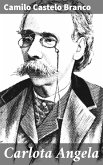In "The Progressionists, and Angela," Conrad von Bolanden presents a compelling narrative that interweaves themes of social reform and personal awakening within the context of a rapidly changing 19th-century Europe. The novel unfolds through rich, vivid prose marked by its psychological depth and intricate characterizations, exploring the tensions between progressivism and traditional values. Bolanden deftly navigates the moral dilemmas faced by his characters, employing a keen sense of irony and social critique that reflects the literary movements of realism and romanticism contemporaneous to his time. Conrad von Bolanden, a German novelist known for his keen observations of society, draws upon his own experiences in an era marked by political upheaval and industrialization. His background in the humanities and his engagement with contemporary philosophical thought informed his exploration of themes such as individualism and community responsibility. Bolanden's keen insight into the human condition, paired with his scholarly acumen, elevates his narrative beyond mere storytelling to a profound commentary on the human experience. Readers seeking a layered and thought-provoking narrative will find "The Progressionists, and Angela" to be an enriching exploration of societal change and personal identity. This novel not only captures the zeitgeist of its era but also invites reflection on the implications of progress and the nature of human connection, making it a pertinent and insightful read for those interested in the complexities of modern existence.
Dieser Download kann aus rechtlichen Gründen nur mit Rechnungsadresse in A, B, BG, CY, CZ, D, DK, EW, E, FIN, F, GR, H, IRL, I, LT, L, LR, M, NL, PL, P, R, S, SLO, SK ausgeliefert werden.









